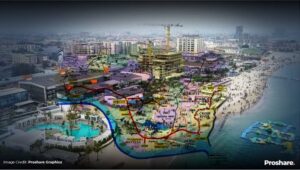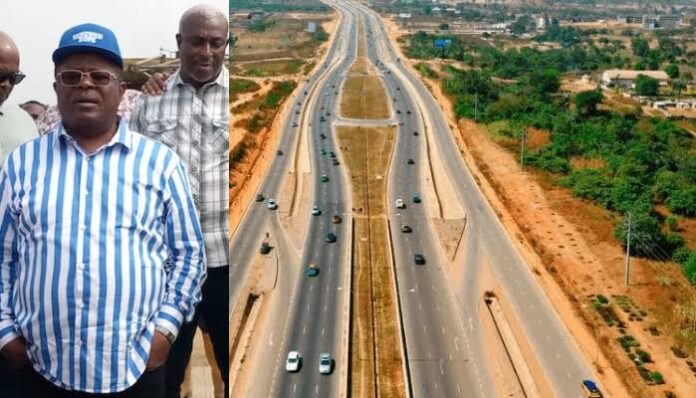Recently, Engr. Dave Umahi called for a Stakeholders Meeting for the Lagos-Calabar Coastal line in Lagos. This was the third such meeting, and it brought unexpected news: Tinubu’s government decided to halt the realignment of the Lagos-Calabar coastal line project.

Umahi explained that the decision was due to the presence of submarine cables along the coastline, which are crucial for the country’s telecom network. According to him, proceeding with the construction would damage these cables and disrupt network services across Nigeria.
However, the real issue extends beyond the project’s high cost. A major crisis surrounding it involved the demolition of Landmark Beach and other multimillion-naira businesses in Lagos, due to the proposed realignment. Initially, the project’s design did not include these businesses. Yet suddenly, Umahi’s team presented a new design that encroached on these areas, marking them for demolition.
During the second stakeholders meeting, a female journalist challenged Umahi to present the Environmental Impact Assessment (EIA) approval for the project. The EIA is crucial as it assesses the environmental impacts before the project begins. Despite being asked, Umahi reluctantly promised to make the report public later.
In today’s stakeholders meeting, Umahi reversed his stance, stating that the plan would not be revealed to Nigerians. He cited the Freedom of Information bill, which allows the government to withhold certain information from the public.
This is both suspicious and alarming because the demolition of Landmark Beach and other businesses directly affects the public. So, why hide the EIA report when it contains information of significant public interest?
The owners of Landmark Beach and other affected businesses argued that the initial project plan did not encroach on their properties. Despite these logical claims, the government ignored them and seemed desperate to proceed with the demolitions. They issued notices for these businesses to vacate the area.
On April 28th, Umahi announced that the demolitions had begun. He mentioned that the government planned to compensate all affected businesses, including Landmark Beach.
Surprisingly, in another stakeholders meeting on May 1st, Umahi claimed that compensation payments totaling about ₦2.75 billion had already begun. However, Landmark Beach and other visibly affected businesses were not included as beneficiaries. Instead, he mentioned that two houses, one owned by a Mr. Bolaji, were the main recipients. The media, however, had no details about these recipients of the substantial compensation.
In today’s meeting, Umahi announced that the Lagos-Calabar coastal line would no longer extend to the areas where Landmark Beach and other demolished businesses were located. This came after the businesses were already destroyed and many people lost their jobs.
The most troubling truth is that even before the demolitions, telecom companies had informed Tinubu’s government about the submarine cables along the coastal line. Umahi and his team were aware but proceeded recklessly.
As a result, businesses have been demolished, thousands of people have lost their jobs, ₦2.75 billion has been spent on questionable compensation, and billions more have been wasted on the initial stages of the project.
This situation raises serious questions: Was this an honest mistake, or was Tinubu’s government pursuing another agenda under the guise of building a coastal line? Given that the demolished areas are now under federal control, one must wonder if there was another objective all along.
Is this a case of mismanagement, or is there a more sinister motive behind these actions?




